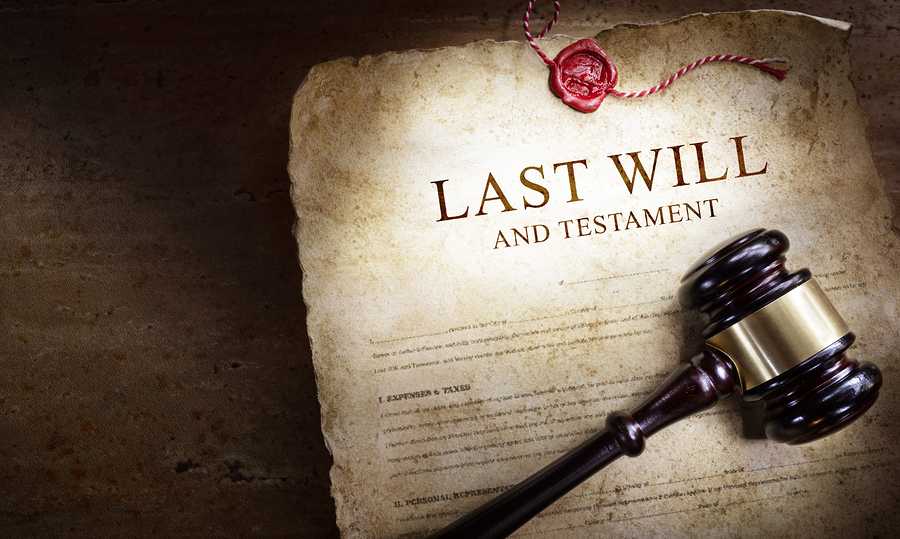A Will is the Way to Have Your Wishes Followed

A will, also known as a last will and testament, is one of three documents that make up the foundation of an estate plan, according to The News Enterprises’ article “To ensure your wishes are followed, prepare a will.” Two other very important documents are the Power of Attorney and a Health Care Power of Attorney. These three documents all serve different purposes, and work together to protect an individual and their family. Today I’ll focus on the will and its important for conveying your wishes for your assets.
In our practice, we often encounter situations where a person passes away either without a will or without updating their existing will, both of which can lead to tragic results. Assets will often go to unintended beneficiaries with far greater cost, difficulty and time.
There are a few situations where people may think they don’t need a will, but not having a will or updating it properly can create complications for the survivors. Here are a few instances where people mistakenly believe they do not need a will.
First, when spouses with jointly owned property don’t have a will, it is because they believe that when the first spouse dies, the surviving spouse will continue to own the property. However, with no will, the spouse might not be the first person to receive any property that is jointly held, and it is especially true that the spouse may not be the first person to receive individually jointly owned property, like a car. Even when all property is jointly owned—that means the title or deed to all and any property is in both person’s names –upon the death of the second spouse, an intestate (meaning no will) proceeding may have to be brought to court through probate to transfer property to heirs.
We frequently encounter situations where an executor will say that the decedent told them what they want, and that it does not match the will. Or even worse, a decedent will have an old will that no longer reflects their wishes, such as not updating a will after getting married. In these situations, the will controls the property, even though the wishes are now wrong. It is critical to update your will with changes to make sure that the will conveys your estate to the beneficiaries you want.
Secondly, any individuals with beneficiary designations on accounts transfer those accounts to the beneficiaries on the owner’s death, with no court involvement. The same may apply for POD, or payable on death accounts. In Texas you can even go so far as to name a beneficiary specifically on your deed or car title. If the beneficiary named on any accounts has passed, however, their share will go into your estate, forcing distribution through probate. Beneficiary designations also don’t adequately plan for successors, incapacity of beneficiaries and sometimes don’t allow many beneficiaries. Clients often try to avoid probate on their own by the use of beneficiary designations, but we often have to open estate administrations where they are incomplete or ineffective for the above reasons.
Third, people who do not have a large amount of assets often believe they don’t need to have a will because there isn’t much to transfer. Here’s a problem: with no will, nothing can be transferred without court involvement. Let’s say your estate brings a wrongful death lawsuit and wins several hundred thousand dollars in a settlement. The settlement goes to your estate, which now has to go through probate.
Fourth, there is a belief that having a power of attorney means that they can continue to pay the expenses of property and distribute property after the grantor dies. This is not so. A power of attorney expires on the death of the grantor. An agent under a power of attorney has no power, after the person dies.
Fifth, if a trust is created to transfer ownership of property outside of the estate, a will is necessary to funnel unfunded property into the trust upon the death of the grantor. Trusts are created individually for any number of purposes. They don’t all hold the same type of assets. Property that is never properly retitled, for instance, is not in the trust. This is a common error in estate planning. A will provides a way for property to get into the trust, upon the death of the grantor. This is called a pour over will. See here for more details. https://galligan-law.com/i-have-a-trust-so-why-do-i-need-a-pour-over-will/
With no will and no estate plan, property may pass unintentionally to someone you never intended to give your life’s work to. Or, having an out of date will that doesn’t reflect your wishes may direct property to someone you no longer wanted to benefit. Having an up to date will lets the Executor know who should receive your property. The laws of your state will be used to determine who gets what in the absence of a will, and most are based on the laws of heirship. Speak with an estate planning attorney to create a will that reflects your wishes, and don’t wait to do so. Leaving yourself and your loved ones unprotected by an up to date will, is not a welcome legacy for anyone.
Reference: The News Enterprise (September 22, 2019) “To ensure your wishes are followed, prepare a will.”


